Keyword: Fethullah Gulen
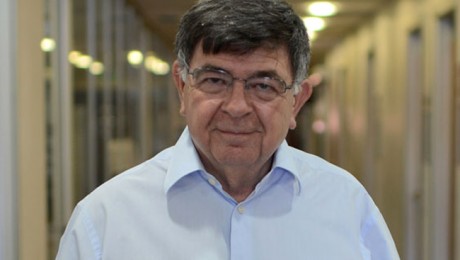
Toward an Islamic enlightenment
Turkish Islamic scholar Fethullah Gülen, who has put forward an interpretation of Islam that advocates peace, democracy, secularism (in the sense of freedom of religion and conscience for all), science, education and a market economy, and who has supported interfaith dialogue and mutual understanding and respect for people of different ethnic and religious identities and lifestyles, has been the topic of much curiosity for native as well as foreign observers of Turkey.

Turkey Deports Journalist for Criticizing Government on Twitter
The editor in chief of Today’s Zaman, Bulent Kenes, said that Mr. Zeynalov’s deportation was an attempt to intimidate the foreign news media after Mr. Erdogan’s government had moved to suppress critical reporting in the local media. “I consider his deportation as a lesson the government tries to teach at micro level,” Mr. Kenes said. “It is intimidation of everyone doing international journalism.”

Media freedom in Turkey takes another blow
On Dec. 25, Mahir Zeynalov sent out two tweets. “The first tweet contained a link to a news report about the second wave of a massive graft operation and how police blocked a raid involving more than 40 suspects, including Saudi businessman Yasin al-Qadi — listed as a specially designated terrorist by the United States,” Today’s Zaman reported Jan. 31. Zeynalov’s tweets are no longer present on his Twitter account. “’Turkish prosecutors order police to arrest al-Qaeda affiliates, Erdogan’s appointed police chiefs refuse to comply,’ read the first tweet. In the second tweet, Zeynalov shared a news report detailing al-Qaeda suspects’ escape from the country after police chiefs blocked the raid on Dec. 25.”

Gülen movement’s silent majority
After all, it is not difficult to understand that the reasons pushing so many people so far from home have been a love of service and a love of their own country. During the course of my travels, I also had the chance to meet a few of the teachers dedicated to their service and to teaching in these schools. Most of them had sacrificed some of their own opportunities so that they could simply contribute to the schools at which they are working.

The Gülen Movement and Turkish Soft Power*
The Gülen approach to education aptly demonstrates the group’s global strategy—Gülen movement schools are open to both Turkish migrants and citizens of host countries, and they avoid advancing a religious agenda. These schools aim to help Turkish migrants succeed in their host societies without losing sight of their Turkish roots, and at the same time they promote social unity by serving the needs of migrants and local students alike. The success of Gülen movement schools stems both from the success of the students (and the satisfaction of the parents) and from the prestige and goodwill they enjoy among local and political authorities for promoting integration and acting as a social mediator.

German intelligence did not warn against Hizmet Movement
The BfV, which is in charge of domestic intelligence in Germany, acknowledged that it analyzed certain articles by Islamic scholar Fethullah Gülen. According to the BfV, this analysis was based on their legal prerogative to check the compatibility of certain documents with the free and democratic constitutional order.
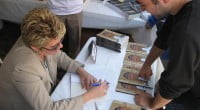
Dr. Jill Carroll speaks on Fethullah Gulen and The Gulen Movement
Dr. Jill Carroll, author of the book A Dialogue of Civilizations: Gülen’s Islamic Ideals and Humanistic Discourse, speaks at the lecture and book signing event in Chicago at Niagara Foundation. Dr. Carroll talks about the components that lead her to write the book and provides valuable insight on its context and content. Fethullah Gulen is […]
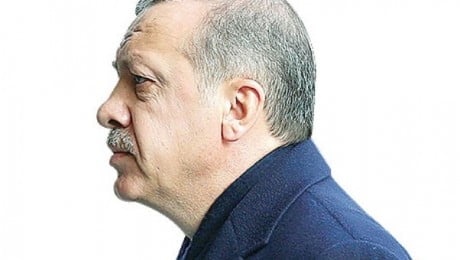
Prime minister’s inconsistencies raise eyebrows
Distortions of the truth and outright lies by Erdoğan regarding the economy, the Gezi protests, the Supreme Board of Judges and Prosecutors (HSYK), prosecutors and investigations by prosecutors, the graft investigation and the Hizmet movement are some of what is making Erdoğan’s rhetoric questionable.
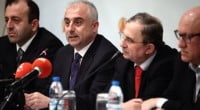
GYV calls on President Gül to investigate interference with judiciary
Yeşil said the GYV is calling on Gül to take action to prevent these risks to the constitutional order, the separation of powers, checks and balances, the independence of the judiciary and the rule of law. He said: “The public expects him [Gül] to use his powers and authorities under the Constitution to investigate the interventions that sought to render the law dysfunctional, in terms of the graft and bribery investigations.
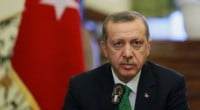
Turkey’s once-worldly aims falter, even close allies concerned
Power appears to have gone to the prime minister’s head. Angling to become president in order to extend his rule, Erdogan is foolishly profiling and purging former friends in the Hizmet movement, recently firing hundreds of government employees who are allegedly (no one knows for sure as there’s no evidence) sympathetic to the movement’s founder, Fethullah Gulen
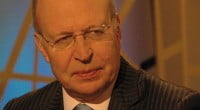
British politician Duff: So easy for some Turkish media to misreport
In a written statement to Today’s Zaman, the veteran British politician Andrew Duff, who is also the president of the Union of European Federalists, underlined that during the interview with Sabah, he also praised the “charitable works of the Hizmet movement and the fact that many honest businessmen and decent democrats were members of the movement” while also stressing the need for more transparency.
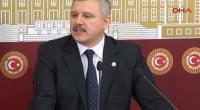
Fresh resignation in Turkey’s ruling AKP over graft scandal
Çetin also denied that he had spoken about resigning with Gülen, adding that the U.S.-based scholar did not give orders to anyone. “He does not interfere with anyone’s preferences. You only take advise and he gives his personal opinion. He has actually persuaded me to stay until today,” the resigned deputy said.

What is lacking in democratization package is democracy itself
This time’s so-called democratization package to soon be submitted to Parliament is an overt effort to make judicial proceedings nearly impossible if the consent of a governor or one of their deputies has not been granted. A prosecutor who wants to start an operation will first go to the governor (read: the government) in order to get a license to use law enforcement bodies in any sort of operation. This move is not only against democratic norms and the principles of transparency and the rule of law, but is also a clear reflection of a defensive mechanism in light of mounting corruption and graft claims surrounding senior government officials.

Turkish Scholar Fethullah Gulen Speaks about PKK
Mustafa Tabanli Turkish scholar Fethullah Gulen broke a self-imposed 16-year broadcast silence and spoke to BBC about his home country Turkiye. One of the key issues facing the country is the Kurdish issue, Hizmet movements support for the peace process. Fethullah Gulen, Turkish scholar: “We were never completely aligned with any political party. But on […]


















